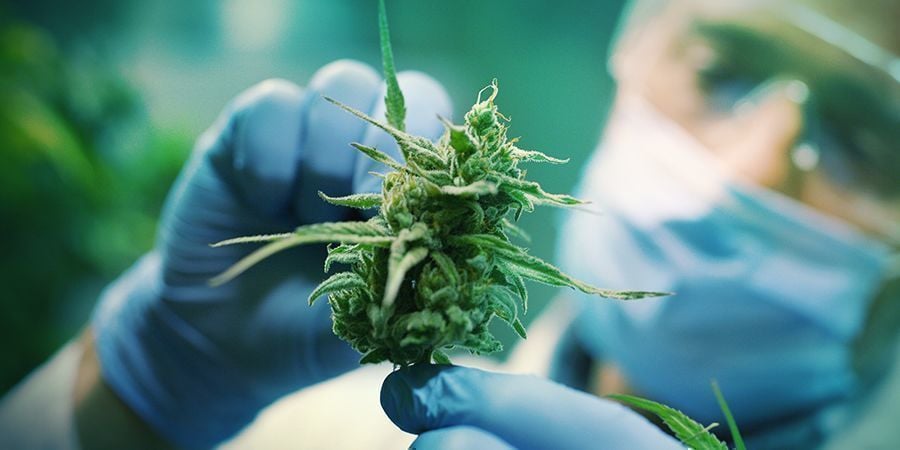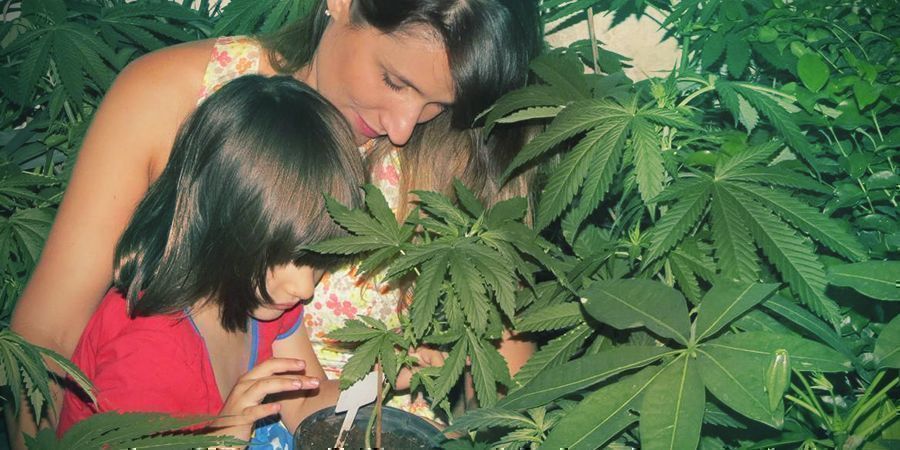
How To Talk To Your Kids About Cannabis
Many parents are hesitant to talk to their kids about drugs like cannabis. However, experts advise that parents should actually do so as soon as possible. Being open and honest with your child can lead to a more positive relationship and a better understanding of cannabis for both of you.
Although it is illegal for children to use recreational or medical marijuana, research shows that many of them will use it anyway at some point during their adolescence. Talking to your child early about cannabis is a great way to prepare them for when they eventually encounter it in the real world.
Discussing this subject with children can be difficult for many parents. However, experts believe that the earlier parents do so, the better. As a result, you can help to guide them towards responsible and safe use. Leaving children to figure things out for themselves in a world where cannabis is so accessible may render bad results.
THE CHANGING PERCEPTION OF CANNABIS

The public perception of marijuana is quickly changing in the West. What once was viewed as a dangerous and harmful drug is now seen as one with various medicinal benefits (in the right settings, of course). The emergence of cannabis as a legitimate political issue and the constant appearance of marijuana in news and entertainment make discussing it with young children all the more important.
Marijuana’s medicinal properties have been instrumental in softening the public’s stance. Medical marijuana is now legal in 33 of 50 US states, and is used to treat a variety of qualifying conditions ranging from stress disorders to cancer symptoms. The recognition of marijuana’s medical properties at a government level has lent it a great deal of credibility in the public eye.
Medical marijuana’s ability to safely and effectively treat children has been especially important in its fight for recognition as a legitimate medical treatment. The ability of cannabidiol (CBD) to fight rare forms of epilepsy in children has made headlines in both Europe and the Americas.
Changes in the accessibility and availability of cannabis have also driven a change in the public perception of the drug. As more medical and recreational dispensaries open their doors, more people are being exposed to cannabis than ever before. As such, its reputation is changing from that of a street drug to that of a consumer substance like alcohol or tobacco.
RESEARCH INTO THE EFFECTS OF CANNABIS ON CHILDREN IS ONGOING
It is generally accepted that marijuana use among teens is not a good thing. The teenage years are a crucial period of development for the human brain. Mind-altering substances such as THC-rich cannabis and alcohol have been shown to negatively impact the brain’s ability to develop and function. Additionally, the heavy use of cannabis during adolescence has been shown to lead to worse life outcomes such as poor school performance, higher dropout rates, and higher unemployment.
Several studies have concluded that marijuana hinders the brain’s ability to fully develop throughout adolescence and into adulthood. However, some experts have called the results of these studies into question.
For example, one prominent study did not differentiate between test subjects who used only cannabis and those who used both cannabis and alcohol. Meanwhile, other studies have outright concluded that cannabis does not have any kind of significant impact on the final structure of a developing brain. As such, more research is required in order to fully understand the effects that cannabis can have on a developing brain.
Research into how marijuana may impact teenagers is still being conducted, and results have been mixed. At the moment, researchers are not sure if marijuana use is causing teenagers to have bad outcomes, or if teenagers on the road to bad outcomes are just more likely to use marijuana.
TIPS FOR APPROACHING THE SUBJECT WITH YOUR CHILDREN

Talking to your kids about cannabis can be tricky. It’s tough to know when or how to approach children about such a sensitive subject. Thankfully, today’s children are regularly exposed to balanced views on marijuana through the news and mainstream media. While this may make a parent’s job easier, it does not remove the responsibility of talking with your children about safe and responsible cannabis use. Here are 5 tips that we believe can help you broach this subject with your children
-
TRY NOT TO FORCE IT — TAKE ONE STEP AT A TIME!
It is important to take it easy when approaching such a sensitive subject. Being too aggressive or straightforward could lead to your child pulling away or being difficult about the subject.
A good idea is to look for opportunities to start a conversation. Forced or formal situations such as “family meetings” may cause children to feel nervous or uncomfortable. Some examples of opportunities include driving past a cannabis dispensary or viewing cannabis use on TV. It is important to make your child feel as comfortable as possible during this conversation as this will allow them to be more honest with you.
-
BE OPEN
Let your kids know that they can always approach you and talk to you about marijuana. Avoid being judgemental, and strive for a conversation, rather than a lecture. By being open and relaxed throughout the discussion, you will encourage your child to discuss drug-related issues with you again in the future.
If your child is using marijuana, try to understand why they may be doing so. Seeing things from their perspective can really help parents understand why this is occurring, and how they can work to stop or reduce use.
Additionally, be clear about what you expect from your children. Parents should communicate their expectations clearly, openly, and honestly without being aggressive or putting excessive or unnecessary pressure on their child.
-
BE EDUCATIONAL
Teaching your kids how to identify marijuana, and what it is used for, will prepare them for when they eventually come across it. It is important to be educational and factual about marijuana. Attempting to frighten children with biased information might actually end up having the complete opposite effect when they realise how harmless cannabis actually is.
Being honest with your children about things like how marijuana can affect the developing brain, and the risk of psychological dependence, will help them to make the right choice on their own. Discussing marijuana’s ability to treat certain medical conditions can also help a child to understand that cannabis has a purpose other than recreational use.
-
ADDRESS RISKS
It is extremely important to calmly and cooly discuss the possible risks of cannabis use. While research has shown that it is cleaner than tobacco smoke, cannabis smoke still contains carcinogens and toxins that can cause health problems. As such, children should be made aware of the possible health consequences of regular marijuana use.
Apart from health risks, parents should also discuss the legal risks involved with cannabis use. This is especially important when it comes to driving under the influence of cannabis or other mind-altering substances. Moreover, parents should make sure their children understand that regular cannabis use can have a negative effect on their performance in school, sports, or other focus-related activities.
If you have a family history of addiction, being honest with your child about it is probably a good idea. Knowing that they may be predisposed to addictive behaviour can encourage adolescents to use marijuana more responsibly.
-
BE HONEST
If you regularly use marijuana, or if your child asks about your past experience with marijuana, it may be a good idea to just be honest—to an extent. You certainly don’t have to disclose or discuss every detail of your past experiences, however, if your child asks about it, admitting to responsible recreational or medical use can help them to gain more trust in your advice.
HOW TO SMOKE MARIJUANA RESPONSIBLY, EVEN WITH CHILDREN AROUND

If you plan to smoke marijuana with children around, always remember to do so responsibly and safely. Most importantly, you should never expose children to harmful secondhand cannabis smoke.
Much fuss has been made about avoiding exposure to secondhand tobacco smoke, however, secondhand cannabis smoke can potentially be harmful as well. Secondhand smoke can increase the risk of lung and ear infections, and eventually, lung cancer. And while cannabis smoke may contain fewer carcinogens and toxins than tobacco smoke, they are still present.
Additionally, studies show that absorbing secondhand cannabis smoke also means absorbing cannabinoids like THC. While it may take a tremendous amount of secondhand smoke to cause any mind-altering effects, it is never a good idea to introduce cannabinoids into a child’s system unnecessarily.
ONLY YOU WILL KNOW WHAT IS RIGHT FOR YOUR CHILD

The decision to discuss such a sensitive topic with a child is always up to the parent. It is possible that they simply have no intention of ever using marijuana. As mentioned before, forcing the conversation onto your child may be a bad idea.
Every family, every relationship, and every situation is different. As such, these are only tips on how to facilitate the process of talking to a child about marijuana. This advice should not be followed as dogma. Parents are strongly encouraged to consider their own situation before having this discussion with a child. For more information on this subject, Zamnesia has a host of articles on our blog to help point you in the right direction.












 United States
United States











